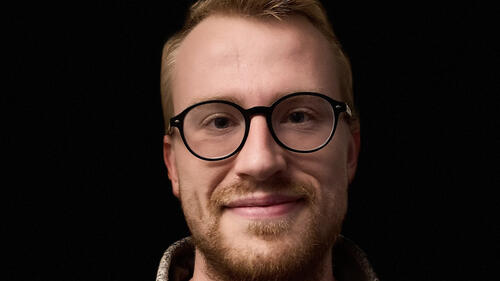
Welcome to Isaac Mooney who comes to us as a postdoctoral associate from Wayne State University. He is working with Helen Caines and John Harris on the STAR experiment as part of the Relativistic Heavy Ion Collider group.
Mooney was born and raised in the American Midwest, but he appreciates the fact that our field is so international, and in his spare time enjoy cooking food from different cultures, and learning languages (at least enough to order a meal at a restaurant in the city he’s visiting for a conference). To stay healthy and mentally decompress, he loves swimming, which he used to do competitively in school, and have recently started bouldering as well. Some of his hobbies include reading (mostly sci-fi and fantasy) and playing music, although during his PhD he didn’t have as much time for these as he would have liked! He is also a vocal advocate for nuclear fission as a low-carbon energy source, and for the field of physics becoming a more inclusive place.
About his research Mooney states, “One of the focuses of the STAR experiment at the Relativistic Heavy Ion Collider has been the interaction of high-energy final-state partons with the hot, colored QCD medium created in collisions of heavy nuclei like gold. This interaction can be measured indirectly as a modification to the eventual collimated fragmentation products called jets. Before these jets can be used as a tomographic probe of the microscopic structure of the quark-gluon plasma (QGP), the baseline must be calibrated. For this reason, my dissertation research focused on measurements of jet substructure in smaller systems: proton-proton and proton-gold. This will allow for a future measurement of the modification due entirely to the presence of the QGP, resulting in an improved understanding of the jet-medium interactions at RHIC kinematics. In 2022, excellent work (Phys. Rev. C 105, 044906) from the STAR collaboration suggested that at RHIC, the earliest hard partonic splittings either occur outside of the medium or are not resolved by the QGP. I am interested in following this up by looking into the timing of splits in or outside of the medium and the substructure of jets with splittings resolved or not resolved by the medium.”